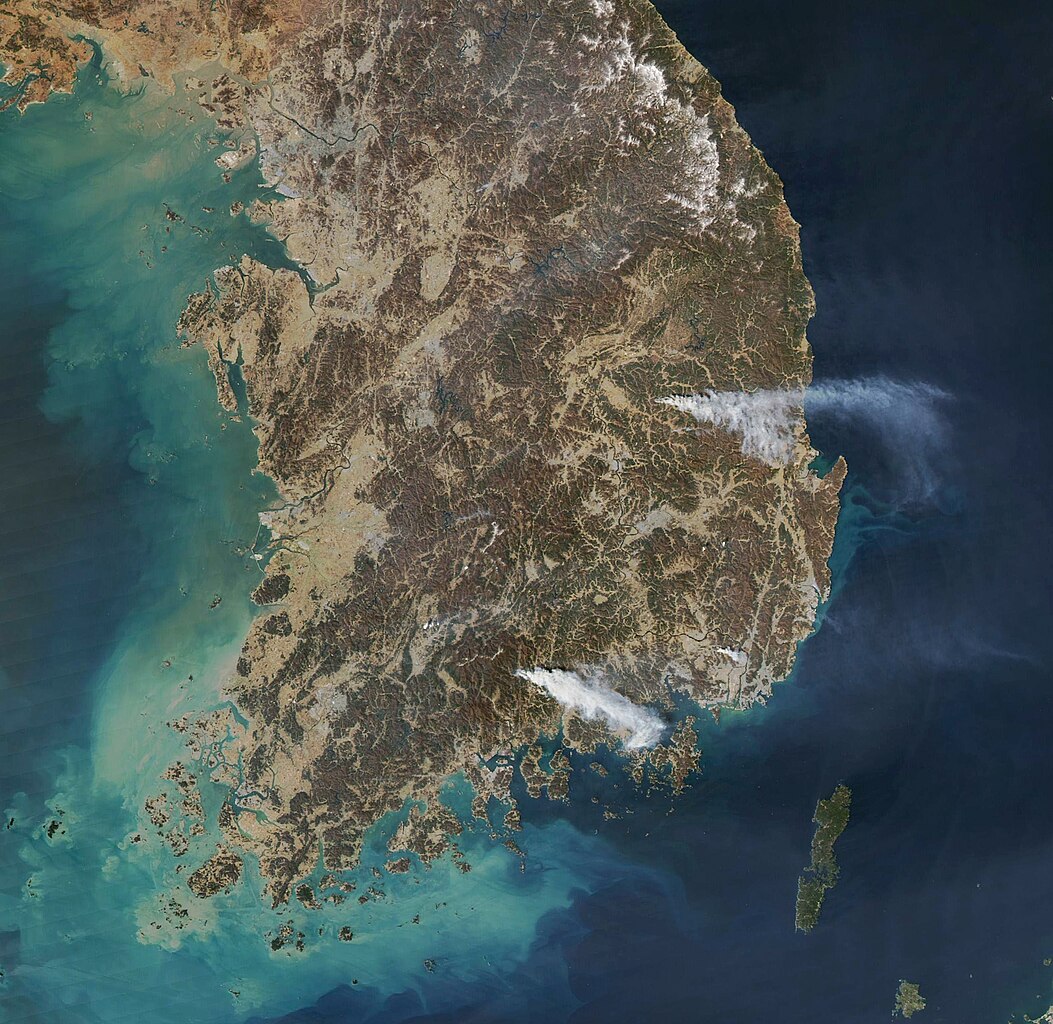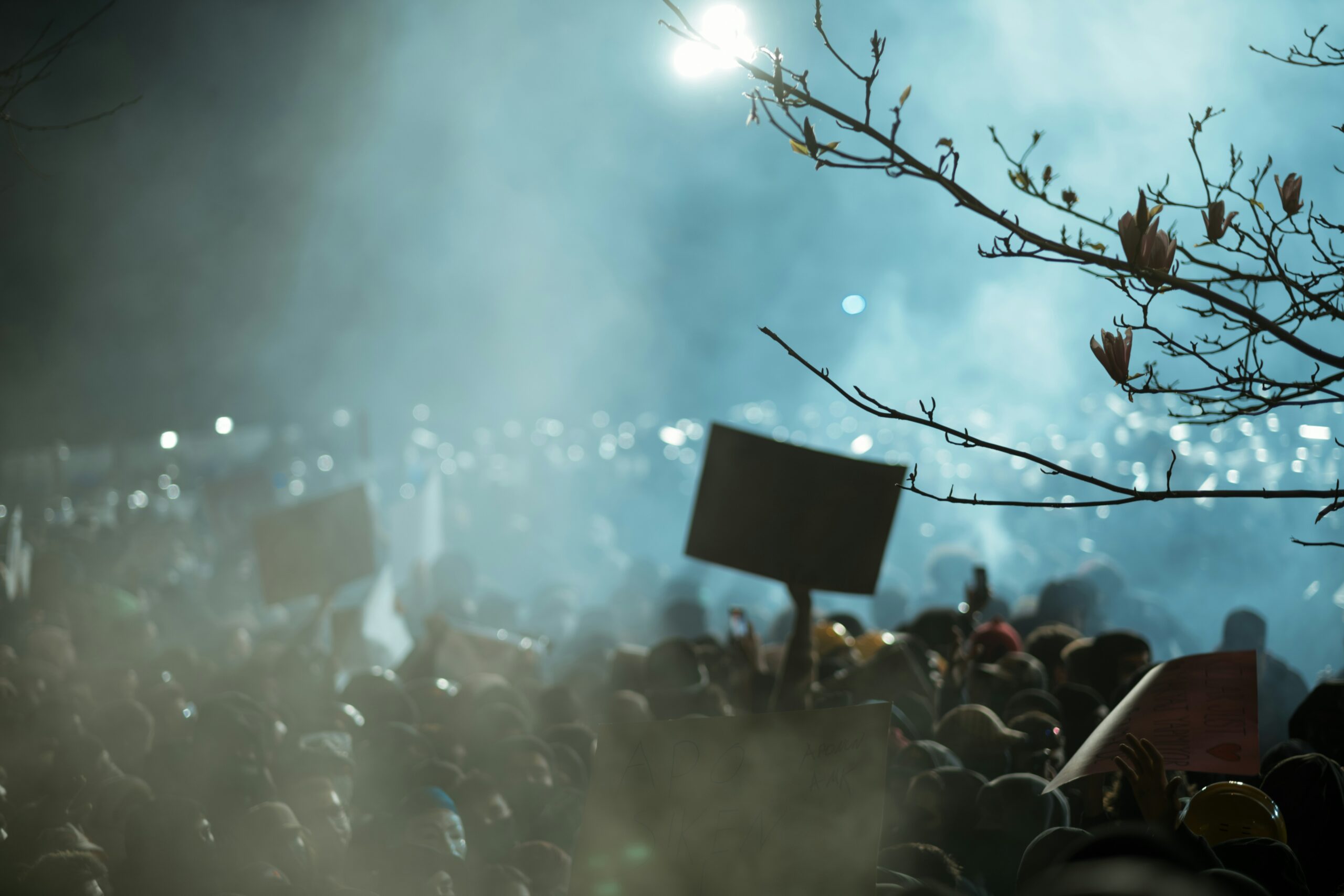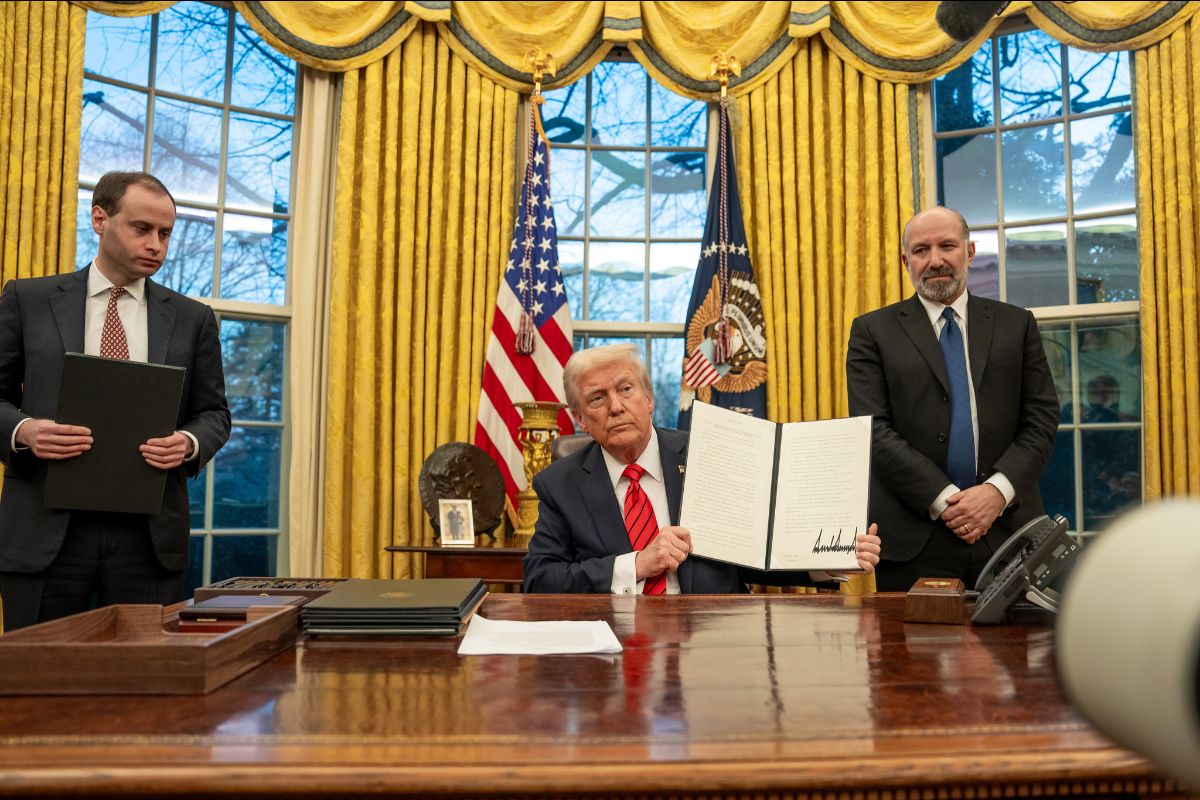Welcome to Factal Forecast, a look at the week’s biggest stories from the editors at Factal.
We publish our forward-looking note each Thursday to help you get a jump-start on the week ahead.
Anti-government protests erupted in Turkey last week in the wake of the detention of Istanbul Mayor Ekrem Imamoglu, widely seen as President Recep Tayyip Erdogan’s main political rival. In this week’s Factal Forecast podcast, Senior Editors Jimmy Lovaas and Halima Mansoor discuss the government’s crackdown on the demonstrations and implications for the opposition
Listen now or download on your favorite platform.
Week of March 28-April 4
A Look Ahead
March 28 – Tajikistan upper parliamentary house elections
On Friday, Tajikistan’s National Assembly will hold elections to elect 25 out of the 33 members in the upper house.
What’s happened so far
On March 3, President Emomali Rahmon and the ruling People’s Democratic Party of Tajikistan dominantly won the lower house elections for the country’s Assembly of Representatives, with Tajik authorities reporting an 85 percent voter turnout. While authorities have called the elections fair and transparent, independent observers were not present after Tajikistan refused to accredit them or give assurance that they would. On Friday, 25 members for the National Assembly will be indirectly picked by cities and districts, with the other eight elected by Rahmon.
The impact
The 30-year rule of President Rahmon is undoubtedly being solidified in Tajikistan’s parliamentary elections, with no observers and international media accredited. Moreover, in a secretive trial that started in Nov, 2024, numerous former Tajik opposition officials were accused of plotting a coup and sentenced to up to 27 years in jail. With no opposition, it is unlikely the upper parliamentary house elections will do anything but continue Rahmon’s reign up until the presidential elections in 2027.
March 31 – Belgian unions call national strike against austerity measures
A nationwide strike action is expected to take place in Belgium on Monday as workers across multiple sectors demand better working conditions.
What’s happened so far
Following several months of negotiations, the new Belgian government announced a coalition agreement, which included changes to tax and labor policies, such as a cap on unemployment benefits, early retirement penalties and a freeze in pay. Unions called the deal an attack on “our social and democratic rights.” A massive strike day was announced, with most trade unions expected to take part.
The impact
Public transport and flights at some airports, including in Brussels, will be affected. The capital’s airport has warned no passenger flights will depart on the day, while arrivals will also be impacted. Several trade unions have warned they see the government’s agreement as a “declaration of war” against the working world and the strike marks the “beginning of a marathon of resistance” that could last for the entirety of the legislative term.
Factal is real-time, verified breaking news
Our AI detects early signals across dozens of languages and thousands of open data sources. Then, our 24/7 editorial team, the same people who produce the Forecast, verify it — fast. That’s why the world’s largest companies and NGOs choose Factal.
March 31 – South Africa’s deadline for Taiwan to move embassy
South Africa has called for Taiwan to move its representative office from the country’s capital Pretoria by Monday.
What’s happened so far
Since last October, the South African government has been demanding Taiwan move its de facto embassy, Taipei Liaison Office, from Pretoria to Johannesburg, threatening to close the mission if it does not relocate by the end of March. A South African official told Reuters the call for the office to leave the capital is meant to “accurately represent its diplomatic classification in South Africa.” Taiwan has since protested the request, blaming Beijing for the “unreasonable suppression.” With China being South Africa’s biggest trading partner, many see the latest move as part of Beijing’s long-standing efforts to isolate Taiwan by pressuring countries to abide by the “one China principle,” under which Taiwan is considered as part of China.
The impact
Though Taiwan maintains robust unofficial relations with most major nations, the self-governing and democratic island currently has formal diplomatic relations with just 11 countries and the Vatican. Aside from its representative office in Pretoria, Taiwan has only four other unofficial diplomatic missions in Africa. While it remains unclear what substantive impacts relocating the representative office would have or if South Africa will follow through with its threat of shutting down the mission, Taiwan has shown increased determination to resist China’s campaign of intimidation through diplomatic and military means.
March 31 – Pakistan asks illegal foreigners, Afghan citizen cards to leave
Pakistan’s Interior Ministry asked all “illegal foreigners” to depart by Monday or face deportation on April 1.
What’s happened so far
In fall 2023, following a significant increase in militant attacks in Pakistan in that Islamabad blamed on Afghan-based groups, the Pakistani government launched a mass deportation program aimed at Afghan citizens residing in the country illegally. Earlier this month, expanded the program, ordering those with Afghan Citizen Cards to leave the country. This program, and similar ones in neighboring countries, have resulted in the expulsion of nearly a million Afghans over the last several years, according to UN data.
The impact
Pakistan’s new repatriation drive will now target documented migrants that hold Afghan Citizen Cards, affecting nearly 900,000 individuals. Additionally, approximately 1.3 million Afghan migrants reside legally in Pakistan holding a separate proof of residence permit, though it is unclear how this new directive impacts them. The deportation order will enter into force just days after the main border crossing between Pakistan and Afghanistan was reopened after intense border clashes prompted its closure.
March 31 – South Korea to allow short selling stocks
After being banned for years, traders will be fully allowed to bet against stocks in South Korea beginning Monday.
What’s happened so far
At the outset of the coronavirus pandemic, South Korea banned short selling stocks when the Kospi hit a circuit breaker for the first time since 9/11. Regulators have continuously extended the ban since then. It was briefly lifted in May 2021 but only for shares of large companies on two of South Korea’s major indices. When the ban was reimposed, financial authorities said they were seeking to level the “playing field between institutional and retail investors.” Last year, South Korea said it found several global banks had engaged in illegal short selling to the tune of $156 million dollars, leading to large fines for banks like JPMorgan Chase and Morgan Stanley. Earlier this year, the Korean Financial Services Commission said it had resolved major concerns about short-selling trades, thanks to a new monitoring system. The government also upped penalties for illegal short selling, including the possibility of life in prison.
The impact
Short selling stocks is legal in many countries but it is a controversial issue in South Korea where many people blame the practice for stock declines and undermining fair pricing. So far, there have been mixed reactions to the change, with many suggesting it’s necessary to bring back foreign investors while others are concerned about stock prices. The country is known for the “Korea discount,” which is described as the phenomenon where Korean companies have lower valuations than their peers because of several factors, including the power of its chaebols, or family-controlled conglomerates, as well as its proximity to North Korea.
April 1 – Special elections in Florida to fill two congressional seats
Voters in two Florida congressional districts will go to the polls on Tuesday to fill vacancies caused by resignations.
What’s happened so far
A special election was triggered for Florida’s 1st Congressional District, an area covering the westernmost parts of the panhandle, after Rep. Matt Gaetz resigned only weeks being reelected in the November 2024 election. He was originally tapped for the post of attorney general by President Donald Trump but withdrew following concerns that he did not have sufficient support in the Senate. The second Florida special election, covering the east coast’s 6th Congressional District, was triggered by the resignation of Mike Waltz, who became Trump’s national security adviser.
The impact
Both seats are rated as likely Republican holds, but the scale of Democratic fundraising has given Republicans cause for concern, with each Democratic challenger outraising their opponent by significant margins. Republican leaders have reportedly intervened to help shore up operations in the formerly Waltz-held 1st Congressional District. An upset in Florida’s traditionally conservative panhandle would be hard to pull off but Democrats in Gaetz’s former seat are hoping to capitalize on anger over DOGE’s cuts.
April 2 – Trump’s “Liberation Day” tariffs enacted
After multiple month-long delays, the Trump administration’s 25 percent tariff on all goods from Mexico and Canada could come into effect Wednesday as American officials hint at implementing a scaled-back version of the policy.
What’s happened so far
President Donald Trump announced a 25 percent tariff on all Canadian and Mexican goods shortly after getting elected, with the policy delayed twice in February and March. A 25 percent tariff on all steel and aluminum imports from all countries did come into effect on March 12. The auto sector is expected to be especially impacted, with Trump announcing this week that he planned to impose a 25 percent tariff on cars and car parts imported into the United States. Canada has imposed retaliatory tariffs on the United States as negotiations continue. Mexico has promised retaliatory tariffs, but also has vowed to move away from Asian imports and buy more from the United States.
The impact
Trump has taken to calling April 2 “Liberation Day” to signify the country’s “liberation” from a trade system he perceives to be one-sided. While addressing the press on March 25, Trump hinted at a more scaled-back tariff regime, sparking a stock market rally. The current trade war has turned the economic outlook rather pessimistic for the three largest countries in North America and has increased the popularity of the current governments in Canada and Mexico. Another month-long delay for the flat 25 percent tariff is possible until the election of a new Canadian government on April 28, but taxes on certain sectors will likely come into effect Wednesday.
What Else Matters

Wildfires in South Korea
Dozens of forest fires have broken out across South Korea since mid-March, killing at least 22 people, displacing tens of thousands and destroyed hundreds of structures. Firefighting operations are ongoing for several fires in the country’s southeast. In South Gyeongsang, the Sancheong County fire, which broke out on Friday, has killed at least four people and spread into the neighboring Hadong County. In North Gyeongsang, a fire that originated in Uiseong on Saturday has expanded significantly, forcing the evacuation of the entire city of Andong and killing at least 18 people as of Wednesday. A firefighting helicopter also crashed in Uiseong on Wednesday, killing its pilot.
Watch for: South Korean media reports many of the victims in the North Gyeongsang fires were older residents who died trying to evacuate. Containment levels for the fires are fluctuating as firefighters battle strong winds and difficult conditions, with dry weather expected to continue into April. While the causes of the fires are yet to be officially determined, government officials suspect human error sparked several blazes, possibly due to fire being used during grave cleaning or sparks from welding.

Turkey protests
Anti-government protests, the largest in more than a decade, have gripped major Turkish cities for more than a week after police arrested President Recep Tayyip Erdogan’s top potential challenger, Istanbul’s Mayor Ekrem Imamoglu. Protesters have defied bans on gatherings in Istanbul, Ankara and Izmir, among others, clashing with police on a nightly basis, while Imamoglu and others in his administration have been rounded up and referred to criminal trials on corruption and terrorism charges.
Watch for: With Imamoglu’s Republican People’s Party vowing to fight the crackdown and Erdogan’s government pushing forward with criminal charges and hundreds of arrests of protesters and journalists, there’s increased potential for violence as well as economic and travel disruptions. Erdogan’s final term in office ends in 2028, though a constitutional loophole in the form of an early election could allow him to remain in power. Aside from standard diplomatic statements of concern and condemnation, the United States and Europe have been largely silent over the NATO member’s domestic turmoil.
Extended Outlook
What’s on our radar in the coming weeks…
March 28-April 4
March 28
- Tajikistan upper parliamentary house elections
March 31
- Pakistan asks illegal foreigners, Afghan Citizen Card holders to leave
- South Africa’s deadline for Taiwan to move embassy
- Belgian unions call national strike against austerity measures
- South Korea to lift its ban on short selling across all stock
- Medicare telehealth “flexibilities” established during the Covid-19 pandemic are set to expire
- New Zealand central bank governor officially leaves role
- Reserve Bank of India to inject cash into banking system ahead of end of financial year
April 1
- Namibia will issue visas on arrival for international investors and tourists
- Canadian federal minimum wage set to increase
- Special elections in Florida to fill two congressional seats
April 2
- Trump tariffs enacted
- Mexico to decide on retaliatory U.S. tariffs
April 5-11
April 5
- Possible ELN peace talks in Colombia
April 9
- Multiple Greek trade unions announce 24-hour general strike
April 10
- Ukraine’s Zelenskiy to visit South Africa for talks
- Taiwan holds civil defense drill in Lianjiang
April 12-18
April 12
- Gabon presidential election
April 13
- Ecuador presidential runoff
- First official hearing in South Korean President Yoon’s insurrection trial
April 14
- Ontario Legislature to begin 44th session of Parliament
April 19-25
April 24
- Taiwan holds civil defense drill in Hualien
Thanks for reading! If you would like the Factal Forecast in your inbox, you can sign up for free.
Top photo: President Trump’s planned tariffs on Mexico and Canada could come into effect as early as next week. (Photo: The White House)
Factal gives companies the facts they need in real time to protect people, avoid disruptions and drive automation when the unexpected happens.
Try Factal for free or talk with our sales team (sales@factal.com) for a demo.

